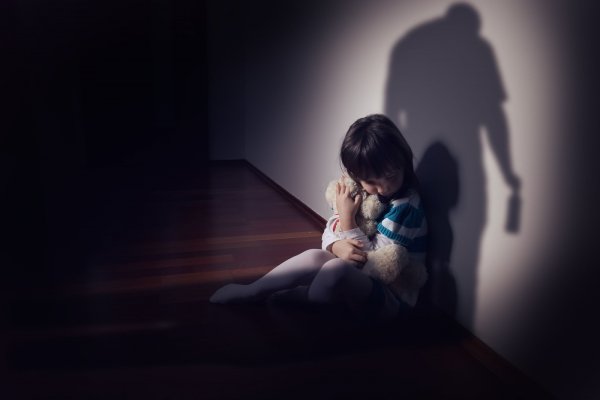26 Things People Do If They’ve Experienced Traumatic Childhood Abuse
Tags: opinion
 By Amanda Froelich Truth Theory
By Amanda Froelich Truth Theory
As much as we’d like to think other people had perfect childhoods growing up, it really isn’t true. Nearly everyone bears at least one scar from their time as a kid, and sometimes, that wound develops into quirks, fears, and behaviors exhibited later on in life.
While this certainly isn’t the case for all victims of childhood abuse, there are patterns people who were abused as children oftentimes display. These can range from having commitment issues and cheating to having trouble accepting compliments.
If you are presently dating someone — or know someone — who exhibits any of the following, they may have been abused as a child. In this situation, it is best to offer unconditional love and support. Only through their own desire to heal will they confront wounds and, hopefully, find healing.
Subscribe to our Youtube channel, new videos every week:
Following are the 26 things people do if they’ve experienced childhood abuse:
- They have commitment issues. This is because they probably had a hard time trusting anyone while growing up.
- They experience random mood swings. This occurs because they had to deal with behavior from an adult figure as a kid. As a result, they learned to model the behavior.
- Sometimes, they go into auto-pilot mode while conversing. They might even blank out. This is due to disassociation, which is a skill learned in childhood to “escape” a painful or troubling situation.
- They don’t receive compliments well — if at all.
- They may commit acts of self-harm. Usually, the behavior began in childhood.
- Sometimes, they have outbursts of anger. Afterward, they might feel depressed because they don’t know how to contain or handle their emotions.
- They are angry all of the time. This can make them seem edgy, or startle easily.
- They suffer from low self-esteem, because they grew up not believing they’d ever amount to anything.
- No matter what they’re doing, they don’t feel as if their efforts are valid. Their mind can play tricks on them, telling them: “Somewhere, someone else is doing ___ better than you.” Such is a lie.
- They have abandonment issues. Sometimes, this develops into attachment issues.
- They tend to be quiet. This is because they have learned to withhold their truth and keep their thoughts to themselves.
- They have issues getting close to others. In fact, some might not like people — at all.
- They mentally and emotionally beat themselves up, as they received this abuse growing up. It is familiar.
- They hate conflict, as it gives them extreme anxiety. As a result, they often run from it instead of facing it.
- It’s hard for them to make eye contact and speaking makes them anxious.
- They are afraid of coming into contact with other people. This is usually just a result of being introverted, which they learned as a child to distance themselves from other people.
- Loud noises, yelling, and harsh environments may feel extremely hostile to them. They are very sensitive to noise pollution.
- They are often defensive, as they perceive people as negative or offensive due to previous abuse.
- They are a perfectionist. To please everyone around them, they become tidy, clean and organized.
- Sometimes, it is hard for them to make a decision. After enduring a troubling childhood, they’ve learned to be passive and not vocalize their inner-most desires.
- They are tough, yet sensitive. The amount of emotions they experienced at a younger age has made them somewhat numb to stimuli.
- They second-guess everything, as a result of their abuse. They don’t know who or what to trust, and that is maddening to them.
- They constantly say, “I’m sorry.”
- They ask questions to which they know the answer. Why? Self-doubt.
- They tend to struggle with addiction issues. From alcohol to opioids to sex to sleep, they try to escape their inner turmoil because they have not yet learned how to learn from it and let it go.
- They might be defensive — for survival, but they are humble. Because they know how bad life can get, they appreciate the good things immensely. As a result, they are a strong survivor.
What are your thoughts? Please comment below and share this news!
Read more: 4 Types Of Sexual Relationships (And Other Freaky Stuff)
Source: IHeartIntelligence
Image Credit: Copyright: ambrozinio / 123RF Stock Photo

Leave Comment: